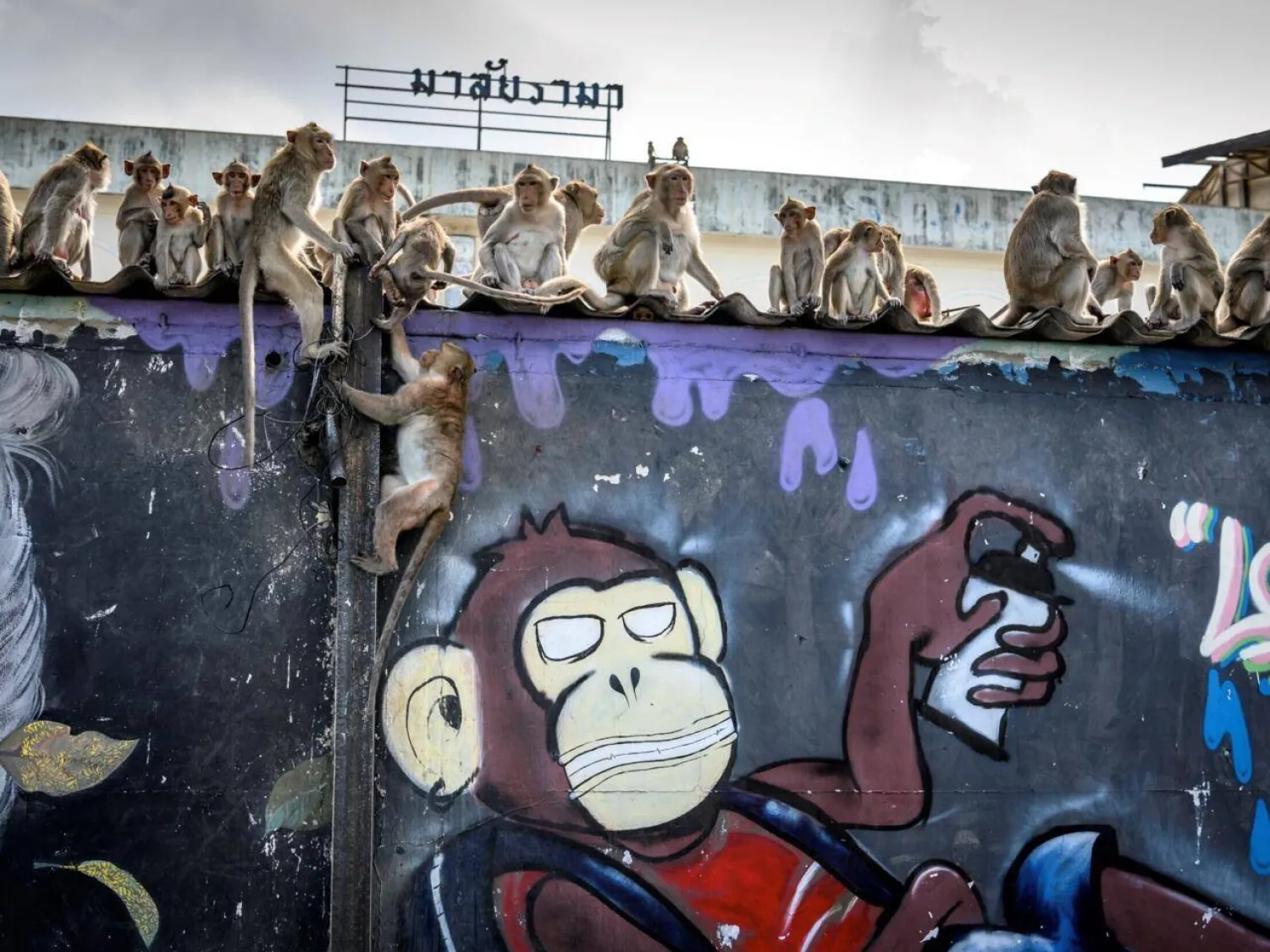Police in central Thailand said they barricaded themselves into their own station over the weekend, after a menacing mob of 200 escaped monkeys ran riot on the town.
The human inhabitants of Lopburi have long suffered from a growing and aggressive monkey population and authorities have built special enclosures to contain groups of the unruly residents.
But on Saturday around 200 of the primates broke out and rampaged through town, with one posse descending on a local police station.
"We've had to make sure doors and windows are closed to prevent them from entering the building for food," police captain Somchai Seedee told AFP on Monday.
He was concerned the marauders could destroy property including police documents, he added.
Traffic cops and officers on guard duty were being called in to fend off the visitors, the Lopburi police said on Facebook on Sunday.
Around a dozen of the intruders were still perched proudly on the roof of the police station on Monday, photos from local media showed.
Down in the streets, hapless police and local authorities were working to round up rogue individuals, luring them away from residential areas with food.
While Thailand is an overwhelmingly Buddhist nation, it has long assimilated Hindu traditions and lore from its pre-Buddhist era.
As a result monkeys are afforded a special place in Thai hearts thanks to the heroic Hindu monkey Hanuman, who helped Rama rescue his beloved wife Sita from the clutches of an evil demon king.
Thousands of the fearless primates rule the streets around the Pra Prang Sam Yod temple in the center of Lopburi.
The town has been laying on an annual feast of fruit for its population of macaques since the late 1980s, part religious tradition and part tourist attraction.
But their growing numbers, vandalism and mob fights have made an uneasy coexistence with their human neighbors almost intolerable.
Lopburi authorities have tried quelling instances of human-macaque clashes with sterilization and relocation programs.
Law and Disorder as Thai Police Station Comes under Monkey Attack

The human inhabitants of Lopburi have long suffered from a growing and aggressive monkey population. Mladen ANTONOV / AFP/File

Law and Disorder as Thai Police Station Comes under Monkey Attack

The human inhabitants of Lopburi have long suffered from a growing and aggressive monkey population. Mladen ANTONOV / AFP/File
لم تشترك بعد
انشئ حساباً خاصاً بك لتحصل على أخبار مخصصة لك ولتتمتع بخاصية حفظ المقالات وتتلقى نشراتنا البريدية المتنوعة







